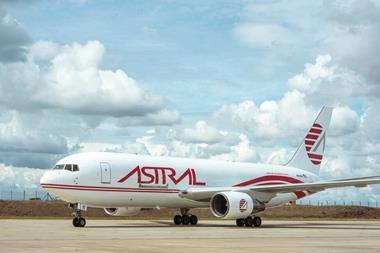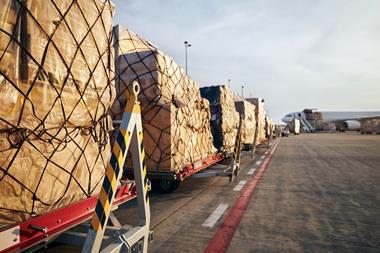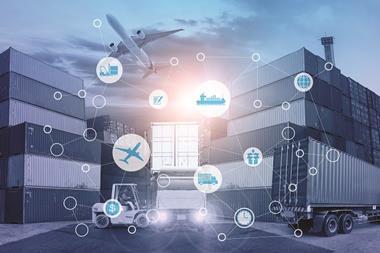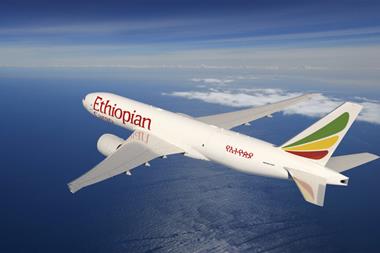For many people, the pandemic may not have been an ideal time to start a new job, but Kawal Preet — who took up her role as president, of Asia Pacific, Middle East and Africa (AMEA) in March — has risen to the challenge.
Since starting, she has kept an eye out for opportunities while steering the company’s performance in the region towards growth.
According to forecasting organisation, Global Insights, Preet says, three of FedEx AMEA’s top markets — China, Japan and India — are expected to be listed among the world’s top five economies by 2030. This puts the company in a good position to capitalise on the region’s potential.
“Not only is this region diverse, it is also a closely-knit economic community where 60% of international trade is intra-regional,” she explains.
“We are focused on creating possibilities and driving growth in AMEA, particularly as global economic recovery gets underway,” she adds. “Our top priority is to grow in Asia, Africa and the Middle East, as well as tapping into our connectivity to, from and within Europe.”
She says that her leadership in facilitating her united team, particularly in the midst of the global Covid-19 pandemic, is key to achieving the region’s growth plan.
“In my role, I’m committed to strengthening our culture and values, so we can unlock our team’s potential in delivering to our customers”.
She continues: “I’m amazed at how well our team is dealing with this crisis; they are the cornerstone of our success and the key to our future.
“While there was a significant reduction on air cargo capacity, we never stopped serving our customers thanks to our global air network.”
Fast response
FedEx AMEA’s success so far in navigating the crisis has not only been dependent on its team, but also on its versatility and agility.
FedEx was a first responder and essential service provider delivering personal protective equipment (PPE) and other medical supplies to its customers, non-profit organisations and selected communities in need.
When carrying out these deliveries, the company faced logistical challenges in the form of cross-border rules and complex customs requirements.
“We’ve had to adhere to changing regulations and guidelines from local authorities and we’ve adjusted features within our services to minimise the impact [of the control of movement of goods] so that we can continue delivering to our customers,” Preet explains.
“We’ve also worked hard to help businesses combat interrupted supply chains that had arisen from measures like airport quarantines, isolation policies and a reduction in flights and capacity.”
Such efforts include FedEx’s teams who work closely with government agencies and trade organisations pushing for continued flight operations and minimal restrictions on aircraft operations.
Keeping customers informed was also important.
“Our teams quickly recognised the rising demand and urgency of shipping relief and medical supplies, as well as the rapidly changing customer requirements in each market,” Preet explains. “So we supported our customers by developing a PPE shipping guide to help importers and exporters in each market.
“We also created a Covid-19 information hub online to provide updates on changing regulations.”
She notes that as different parts of the world emerge from the crisis “in varying degrees”, available capacity varies across different trade lanes and throughout Asia Pacific.
“According to [analyst] Accenture’s insights, the transpacific lane is already operating at pre-Covid levels and could experience even more changes in the near- to mid-term,” she says.
“Eastbound transpacific market capacity grew 4% compared with last year and remains the only trade lane to show air cargo capacity growth [as Air Cargo News went to press].”
She adds: “According to the International Monetary Fund’s 2020 World Economic Outlook Update, the intra-Asia and Asia-Europe lanes are expected to outgrow the transpacific lane.
“FedEx already has a strong network in place to help our customers tap into these trends, whether to Europe or within intra-Asia or intra-AMEA. For example, prior to Covid-19, we expanded the number of destinations available for our international priority direct distribution service and for our international economy direct distribution service.
“So, we now have 148 lanes for international economy and 56 lanes for international economy freight from Asia Pacific to Europe”.
In addition, Preet says that FedEx is playing a role in connecting Africa to the rest of world. For example, last year it introduced its first regularly scheduled flight to Johannesburg in South Africa, which provides the country with connections in Europe and the US.
“We have also provided South African importers with greater access to key European markets with the extension of our dangerous goods shipping services,” she adds.
Fleet and innovation
With 679 freighters actively in service, FedEx has the largest cargo aircraft fleet in the world. Preet says that this, as well as the company’s focus on technological innovation, has helped it to support small- and medium-sized businesses and achieve e-commerce growth, both prior to and throughout the coronavirus pandemic.
“We provide sustainable solutions at a scale,” explains Preet.
For example, FedEx Delivery Manager enables e-tailers to offer their customers different options for where and when they want their orders to be delivered.
Other digital solutions include FedEx Billing Online and Mobile App, which enable payments, and FedEx Virtual Assistant, which uses AI technology to offer a “superior customer experience”.
Preet adds: “E-commerce was booming before the pandemic, but now we are seeing renewed momentum across AMEA.
“Retailers are using digital platforms to drive up sales and it’s becoming more urgent for ‘brick-and-mortar’ establishments to migrate to e-commerce.”
FedEx has also streamlined customs processes for its customers in China. The FedEx Online Declaration Tool is a digital platform that allows customers to submit export information electronically.
Preet says the tool enables small- and medium-sized enterprises to submit customs information “conveniently and accurately”, thereby enabling them to carry out their international business as quickly as possible.
“Customers can search for their products’ harmonised codes and receive guidance about information required by Chinese customs,” says Preet.
“Then, when they submit the information, the FedEx Clearance Team can start the review process and provide further assistance if needed.”
Vaccine preparation
Preet says FedEx AMEA’s experience in healthcare logistics — including its “technology-integrated solutions for planning, storage, transportation and customs clearance of healthcare shipments” — has proven to be valuable in the fight against the pandemic and the build-up to finding a vaccine for Covid-19.
She gives an example: “In Shanghai, we helped a biochemical company successfully deliver an emergency shipment to the US that had been held up due to medical-related regulations.
“When we learnt that the shipment contained Covid-19 vaccine reagents, we quickly arranged the correct paperwork, special handling resources and clearance to ensure the supplies could get to the pharma providers who are working to flatten the curve, contain the virus and save lives.”
The company has also launched a sensor-based logistics device called SenseAware that enables highly precise tracking of shipments. As SenseAware service can monitor current location, precise temperature, relative humidity, barometric pressure readings, light exposure and shock events, and provide near real-time updates to customers who can monitor location and conditions of their shipments, it will be especially valuable to customers in the healthcare sector where shipments are often environment- and time-sensitive.
SenseAware is available in 26 markets worldwide including the U.S., Australia, Hong Kong, Korea, Malaysia, New Zealand, the Philippines, and Singapore and was recently introduced in Japan — a move that comes as various pharma companies race to develop a Covid-19 vaccine while the air cargo industry prepares for its widespread distribution.
“Customers [in rollout areas] now have the ability to monitor data online using signals transmitted from the device, which is included in the package,” says Preet. “This level of visibility and service is best suited for transporting high-value, irreplaceable temperature-sensitive items, such as drugs or specimens and samples from healthcare customers.”
When asked what the future holds for air cargo, Preet says: “The pandemic has revealed strategic vulnerabilities in business across industry sectors. It has also helped accelerate change in new ways of working, technology adoption and opportunities for diversification.”
She continues: “The ‘new normal’ will create more of an awareness about different border regulations and customs procedures that can lead to unexpected delays, backlogs and other issues for shippers.
“Small- and medium-sized exporters are key beneficiaries of trade facilitation reforms as they are the ones most affected by complicated customs procedures around the world.
“In the long term, trade agreements could boost international cooperation on risk management and help facilitate the movement of goods.
“I believe FedEx will continue to play an important part in aiding smoother clearance processes by ensuring the right hardware, expertise and technology solutions are in place”.
Preet also believes that attitudes in supply chain management will shift from “just-in-time” deliveries to “just-in-case” inventory building.
If this becomes a reality, she says, we will see higher uses of slower, more economic delivery solutions, rather than the express solutions favoured at present.
She also anticipates that sourcing links within supply chains will become more diversified “to benefit countries like India, Malaysia, Taiwan, Vietnam and Thailand”.
“This will change the pattern of how goods move and will reduce dependencies on one country or one production location — which, as we have seen, can quickly shut down businesses in times of crisis,” she explains.
In healthcare, Preet believes that Asian economies with research capabilities and the ability to meet low-cost healthcare deliveries could take the lead in areas like digital health solutions.
“The coronavirus crisis highlighted the value of logistics and airfreight for the shipment of much needed healthcare and medical supplies, as well as keeping businesses and e-commerce going,” she notes.
Reflecting on months past, Preet says the crisis has “brought us back to what is truly special about FedEx”.
“Staying agile and adapting to changing customers’ needs in the wake of Covid-19 is what will determine the way forward and I’m grateful and excited to be playing a part in the future of FedEx in AMEA,” she concludes.










